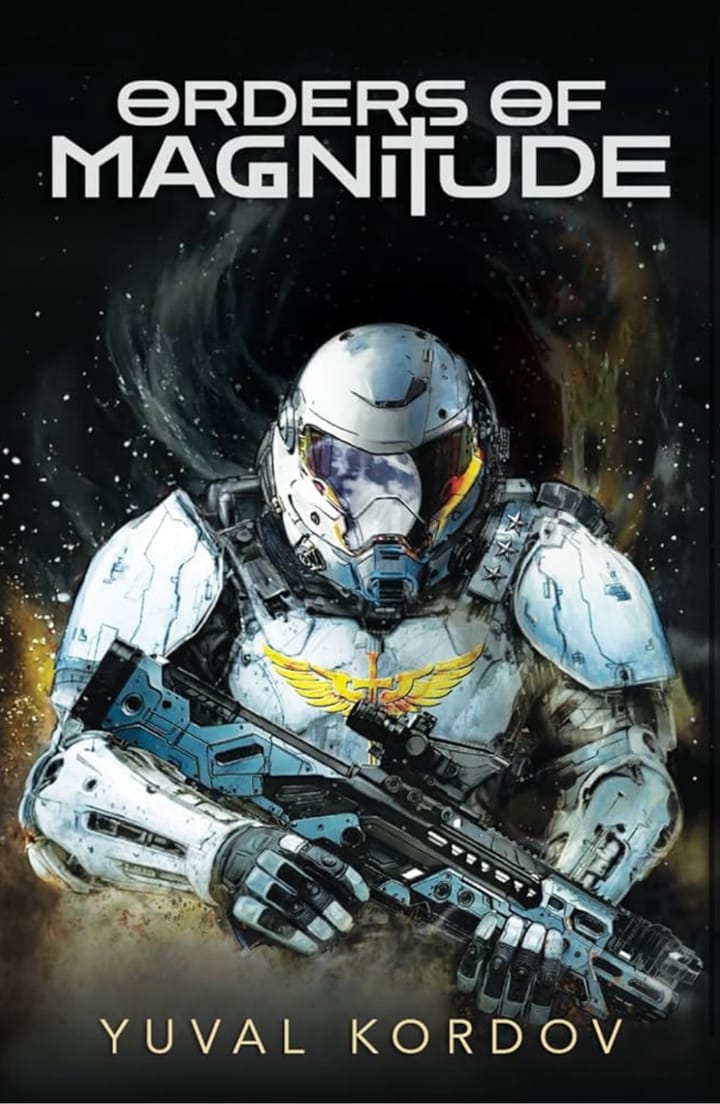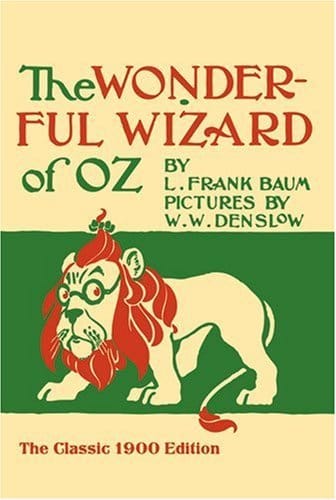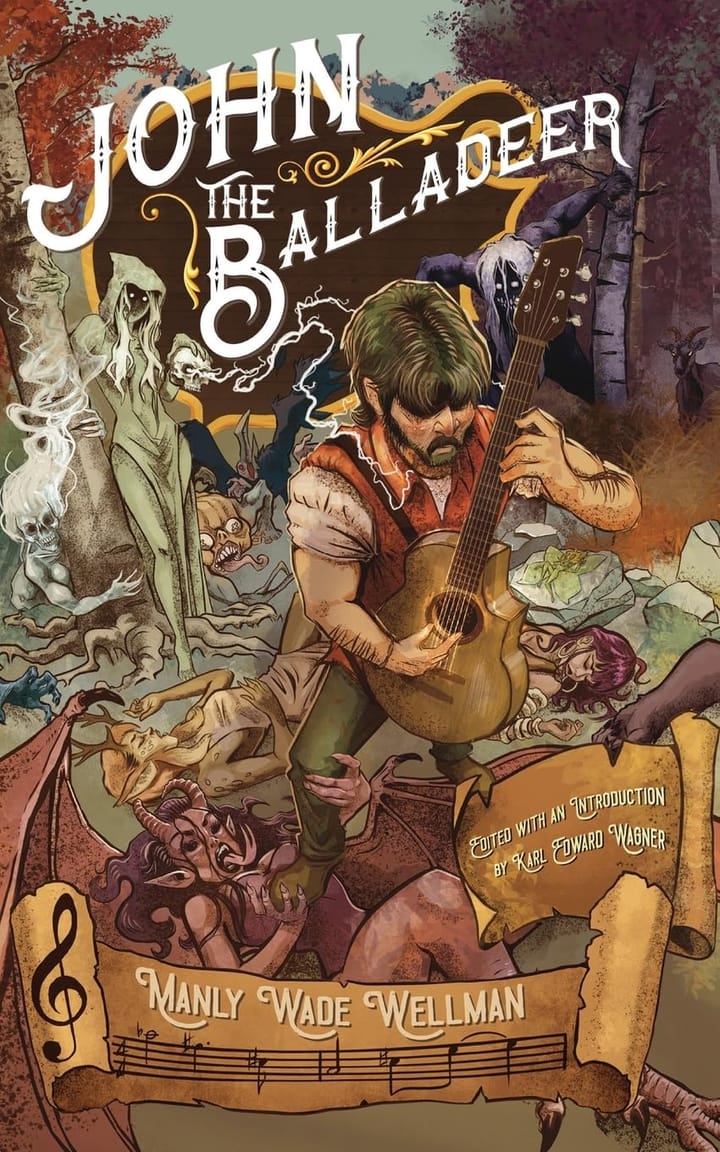Trap Line by Timothy Zahn

"Trap Line" might just be the perfect introduction to Timothy Zahn for those who are unfamiliar with him. This short story has Zahn's signature style, a hybrid of Campbelline science fiction with adventure, and often a little bit of mystery and intrigue too. His characters [and sometimes the readers] need to puzzle something out to move the plot forward. Zahn is adept at making the puzzles both satisfying to assemble and pleasant to view once completed. Anyone who likes what they find here can readily read a lot more very much like it.
For those of us who are familiar with Zahn's long career, we can instead marvel at the output of the man who is perhaps the most consistent writer in English language science fiction and fantasy, a man who has written more than a novel a year for over forty years, plus an even larger number of short stories like this one. Let's dive into "Trap Line" and see how it embodies Zahn's approach to stories.
I said that Zahn's work is broadly Campbelline, but what does that really mean? In my opinion, Zahn follows John Campbell's editorial line at Astounding. One of the hallmarks of Campbell's policy was that he insisted on a combination of scientific accuracy with the speculative element that later came to be called social science fiction. This distinguishes Campbelline works from those published by the earlier editor Hugo Gernsback, who focused on gadget stories and adventures, and also from later writers and editors who shifted from engineering and physics to psychology and sociology and also largely dropped the adventure element in favor of a more realistic and introspective style.
"Trap Line" is structured around exploring the unexpected consequences of a method of faster-than-light travel. This is a classic theme for Zahn, who has used a similar organizing principle in his Hugo award winning "Cascade Point", and also in Deadman Switch and "Ghost Riders in the Sky". But that method of FTL travel also involves astral projection.
This too is a place where I see John Campbell's influence. Campbell had an obsession with psionics that annoyed some of his contemporaries who wished to hew more closely to science and to realism. Yet, Campbell was influential, so a lot of mid-twentieth century sci-fi features some kind of psychic powers. Zahn has frequently explored ideas like this, such as in A Coming of Age, "The Shadows of Evening" or "The Final Report on the Lifeline Experiment".
I see the cover of this story evoking this dual tendency in Zahn's work, with the clean lines of the starship overlaid by a title that bores into a tie-dye psychedelic substratum.
"Trap Line" is also a first contact story. Over the course of his career, Zahn has written up a large number of aliens. Zahn tends to make his aliens recognizably human, with some aspects of their personality or culture more extreme than the human norm. This matches up with the typical themes of a Zahn story, which often involve diplomacy or intrigue between humans and aliens. You could usefully distinguish this from an author like Larry Niven, who writes about aliens that are truly alien to us, radically other, with desires and motivations that are almost incomprehensible, yet still make an odd kind of sense if you can get yourself around to the alien's point of view.
It is easier to have diplomacy and intrigue if it is possible to have some kind of common frame of reference or common goals, so Zahn's aliens trend that way. Zahn is at his best writing intrigue, as he can turn his clever mind to the wilderness of mirrors inherent in any kind of conflict where you don't know whom you can trust. Zahn's Quadrail and Icarus series lean heavily into this kind of Cold War inspired adventure.
Zahn has also written some military-themed sci-fi such as the Blackcollar and Cobra series, but this is probably where he is weakest as an author. Zahn was never in the military, and his military characters do not resonate with the kind of audience that most enthusiastically buy that kind of story. "Trap Line" is not trying to be that kind of story, so no problem here.
The characters that Zahn writes well are problem solvers of various kinds. Whether engineers or diplomats, spies or rogues, many of his best characters are more comfortable talking, thinking, or tricking their way out of a problem. This is where the puzzle or mystery element comes in.
Many, maybe even most of Zahn's stories have some kind of mystery for the characters to solve. Part of the fun in some of them is for the reader to see how well they can figure it out, as sometimes Zahn's characters are not fully honest or fully forthcoming about what they know. Zahn is capable of flexing around this pivot, and he can either lean into romance or into social science fiction as he wishes. The Dragonback series are juvenile adventures, while Soulminder is almost a treatise on moral philosophy.
"Trap Line" is more balanced. It has elements of both adventure and social science fiction, but it plays each one with a light touch. The story keeps moving without getting bogged down, but it also plays to contemporary low-mimetic prejudices that fully embracing the styles and themes of romance is déclassé.
Ultimately, I think "Trap Line" is not the greatest of Zahn's works, but I would like people to read it because it contains the seeds that have grown to greatness in other places, and this is an excellent entry point into his massive back-catalog.
You can find "Trap Line" on Amazon in the Prime Reads program.



Comments ()